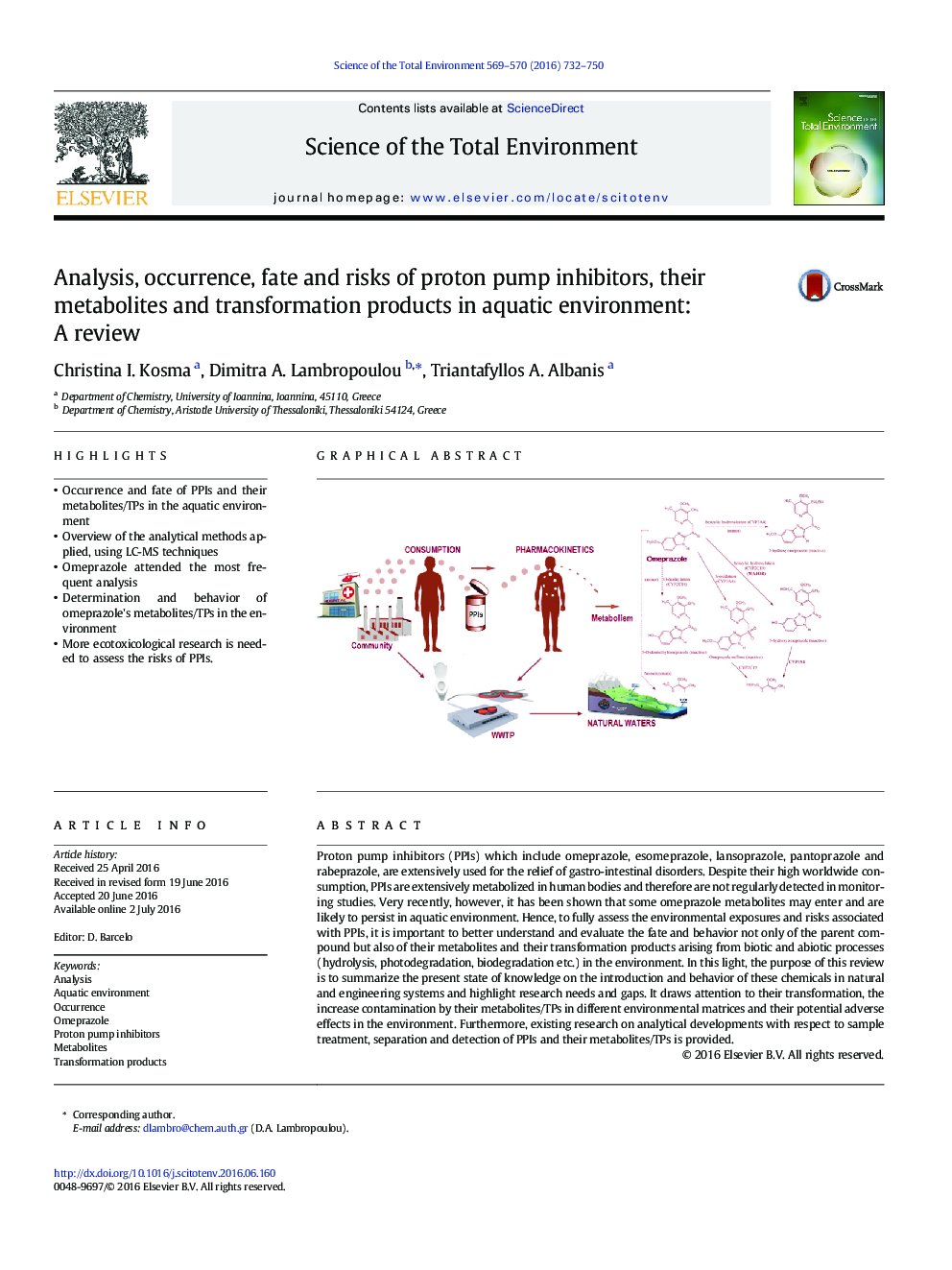| Article ID | Journal | Published Year | Pages | File Type |
|---|---|---|---|---|
| 6320154 | Science of The Total Environment | 2016 | 19 Pages |
â¢Occurrence and fate of PPIs and their metabolites/TPs in the aquatic environmentâ¢Overview of the analytical methods applied, using LC-MS techniquesâ¢Omeprazole attended the most frequent analysisâ¢Determination and behavior of omeprazole's metabolites/TPs in the environmentâ¢More ecotoxicological research is needed to assess the risks of PPIs.
Proton pump inhibitors (PPIs) which include omeprazole, esomeprazole, lansoprazole, pantoprazole and rabeprazole, are extensively used for the relief of gastro-intestinal disorders. Despite their high worldwide consumption, PPIs are extensively metabolized in human bodies and therefore are not regularly detected in monitoring studies. Very recently, however, it has been shown that some omeprazole metabolites may enter and are likely to persist in aquatic environment. Hence, to fully assess the environmental exposures and risks associated with PPIs, it is important to better understand and evaluate the fate and behavior not only of the parent compound but also of their metabolites and their transformation products arising from biotic and abiotic processes (hydrolysis, photodegradation, biodegradation etc.) in the environment. In this light, the purpose of this review is to summarize the present state of knowledge on the introduction and behavior of these chemicals in natural and engineering systems and highlight research needs and gaps. It draws attention to their transformation, the increase contamination by their metabolites/TPs in different environmental matrices and their potential adverse effects in the environment. Furthermore, existing research on analytical developments with respect to sample treatment, separation and detection of PPIs and their metabolites/TPs is provided.
Graphical abstractDownload high-res image (97KB)Download full-size image
